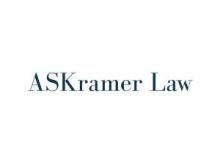We’re seeing an increasing variety of digital tokens that represent rights to, interests in, or ownership of an entity.[1] We’re also seeing digital tokens that represent debt obligations of corporations. These tokens can be either digital representations of value or actual ownership that is recorded on a blockchain. Thus, digital tokens pose a serious tax puzzle.
For tax purposes, the critical question is when, if ever, can tokens themselves be regarded as stock or securities? It does not help us answer this question by calling attention to the supposed distinction between “securities tokens” and “tokenized securities.” On one hand, the terms are confusing because some commentators use them interchangeably,[2] while others treat them as distinctively different types of assets.[3] On the other hand, the terms are irrelevant for tax purposes.
Parsing the Tax Code on the Tax Status of Digital Tokens
All that matters for tax purposes is whether a token has sufficient characteristics to meet the Internal Revenue Code (Code) definitions of “stock” or “securities” set out in various Code sections. The Code is silent as to the tax status of digital tokens. We also have no guidance from the Treasury or the IRS as to the tax status of tokens that represent or certify ownership of debt interests of a corporation. IRS Notice 2014-21[4] and the 2019 frequently asked questions (FAQs), which serve as the base of government guidance, tell us that the IRS views convertible virtual currency as property, not foreign currency, for federal tax purposes.[5] The Treasury and the IRS have been silent, however, as to whether digital tokens might be taxed as stock or securities.[6]
The phrase “stock or securities” appears in various Code provisions. “Stock” is always limited to shares in a “corporation.” Corporations are defined in Code §7701(a)(3) as associations, joint-stock companies, and insurance companies. And stock is defined in Code §7701(a)(7) to include “shares” in a corporation. When the term “securities” is used in the Code, it typically refers to debt securities, such as notes, bonds, debentures, and other evidence of indebtedness. This means that the answer to whether a token could be stock or security for tax purposes must be found by relying on general tax principles and arguing by analogy.
In Field Services Advice (FSA) 780, the IRS said that when the Code does not define what constitutes “stock,” the term refers to “a permanent interest in the corporation’s equity, i.e., its earnings and/or underlying assets.”[7] Based on this definition, it appears likely that certain digital tokens are to be treated as stock for tax purposes. For example, the shares in WisdomTree’s Blockchain-Enabled Funds are represented by tokens that are recorded, transferred, and traded on a blockchain.[8] Similarly, Franklin Templeton has two mutual funds whose shares are represented by digital tokens that trade on a blockchain. One fund share is represented by one digital token. The Franklin OnChain Fund is the first U.S.-registered mutual fund to use digital ledger technology to effect and process transactions, and record share ownership.[9] The ownership records with respect to and transfer of the shares are effected on the blockchain for both Franklin Blockchain-Enabled U.S. Government Money Fund (started in 2019) and the Franklin OnChain U.S. Government Money Fund (started in August 2022 and supplemented April 25, 2023).[10]
The obvious advantages of maintaining records and transferring ownership in the funds on a blockchain include “increased security, faster transaction processing and reduced costs.”[11]
Given that the WisdomTree and Franklin Templeton tokens represent “a permanent interest in a corporation’s [the fund’s] equity, i.e., its earnings and/or “underlying assets” under the analysis in the FSA, these tokens might actually be stock for tax purposes.
‘Collectibles’ Definition Might Offer Some Guidance
This analysis is entirely consistent with the “look-through analysis” that the Treasury and the IRS presented in Notice 2023-27 for determining the tax status of NFTs (non-fungible tokens) concerning “collectibles.”[12] In this notice, the Treasury and the IRS announced that while seeking public comments, they would perform a “look-through analysis” to determine whether an NFT representing an interest in or rights with respect to a “collectible” is itself a collectible. The example given in the Notice is that if an NFT “certifies ownership of a gem,” which is a collectible under Code §408(m), then the NFT is itself to be regarded as constituting a collectible.
If we were to apply this look-through analysis, a digital token that certifies ownership of a share of stock of a corporation—as is likely for the tokens in the funds we have looked at—might be stock for tax purposes. With that said, however, we don’t know if the IRS would apply this analysis to digital tokens.
So far so good, but there are myriad sorts of rights and interests with respect to a corporation that might be represented by a digital token:
-
Are any of those tokenized rights and interests beyond those that certify ownership to be treated as stock?
-
What if the digital token certifies only limited, partial, or contingent ownership rights or interests in a corporation?
-
What about ownership with respect to a limited portion of the corporation’s business? Or, what if the token grants rights to only a portion of a corporation’s gains and losses?
-
What about tokens that do not certify ownership but represent a right to vote? A right to dividends? A right to compel the corporation to repurchase the token at an appreciated value?
-
And, what about tokens that represent rights to services or access to property or events? Indeed, are there some digital tokens that are stock or securities for U.S. securities law purposes but that are not stocks or securities for tax law purposes? [13]
-
Is an extension of the look-through analysis in Notice 2023-27 even a possibility?
-
Would the tax analysis with respect to American depository receipts (ADRs) possibly apply?
The questions could go on and on, but the answers are hard or impossible to answer definitively.
Token Holders and Issuers Face Key Tax Questions
Because facts and circumstances are likely to drive the tax answer, taxpayers should consult with their tax advisors to determine whether the digital tokens they are issuing or purchasing could constitute stock or securities for tax purposes.
For issuers, if their tokens do, in fact, constitute stock, they would have reporting and withholding obligations that would necessitate their knowing the identities of their token holders. In addition, they would be subject to tax rules that apply to issuers of stock or securities.
For holders of such tokens, there are significant differences between the taxation of gain or loss on digital tokens taxed as property and tokens taxed as stock or securities. Application of the wash sales rule at Code §109
https://www.theblock.co/post/228445/franklin-templeton-fund-polygon;
https://blockworks.co/news/franklin-templeton-latest-crypto-ambition
[2] In the article "Tokenized Securities: Combining the Best of Tokens with the Best of Securities," the author noted, "a distinction between security tokens and tokenized securities" is "a distinction we believe is out of place. … Any token that is compliant with securities law can be called both a security token and a tokenized security." https://www.inx.co/learn/academy/what-is-a-security-token-understanding-the-basics-of-tokenized-securities/, site visited May 20, 2023.
[3] Noelle Acheson, "Security Tokens and Tokenized Securities are not the Same Thing," Opinion, Coin Desk, Feb. 15, 2023, https://www.coindesk.com/consensus-magazine/2023/02/15/we-need-clearer-terminology-for-crypto-organization-coindesk/, site visited May 10, 2023.
[4] Notice 2014-21, 2014-16 I.R.B. 938.
[5] Notice 2014-21, Q&As 1 and 2; 2019 FAQs.
[6] The only Code reference we have to "digital assets" is at Code § 6045, which addresses information reporting for brokers. Starting January 1, 2024, "digital assets" have been added to the list of "specified securities" subject to broker reporting. The list of "specified securities" includes commodities, derivatives, stock, and securities. Digital assets were added to this list of covered products. The addition of digital assets to a reporting requirement that already includes stock and securities does nothing to clarify when and if some digital assets could be taxed as securities.
[7] Field Service Advice 780, Vaughn #780, Sept. 20, 1993.
[8] WisdomTree, “WisdomTree Announces Nine New Blockchain-Enabled Funds are Effective with SEC,” Press Release, Dec. 14, 2022.
[9] Polygon Labs, “Franklin Templeton Money Market Fund Launches on Polygon Blockchain, April 26, 2023 https://www.franklintempleton.com/press-releases/news-room/2023/franklin-templeton-money-market-fund-launches-on-polygon-blockchain. Yogita Khatri, "Franklin Templeton Expands It's OnChain US Government Money Fund to Polygon," TheBlock, April 26, 2023, https://www.theblock.co/post/228445/franklin-templeton-fund-polygon, site visited May 15, 2023.
[10] https://www.sec.gov/Archives/edgar/data/1786958/000137949121001250/filing222856581.htm
[11] Franklin Templeton, “Franklin Templeton Money Market Fund Launches on Polygon Blockchain, April 26, 2023 https://www.franklintempleton.com/press-releases/news-room/2023/franklin-templeton-money-market-fund-launches-on-polygon-blockchain
[12] Notice 2023-27.
[13] "What is the Howey Test & Does Crypto Pass? The 4 Elements,” Embroker, May 22, 2023, embroker.com/blog/what-is-the-howey-test-does-crypto-pass/, site visited May 23, 2023. SEC, "Framework for Investment Contract Analysis of Digital Assets," www.sec.gov/files/dlt-framework.pdf, site visited May 23, 2023.




 />i
/>i

